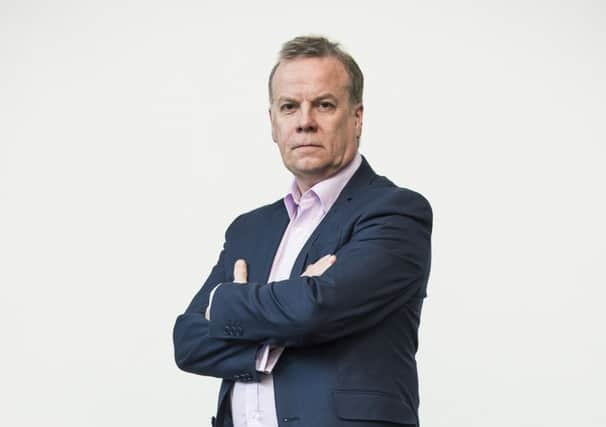Comment: Politicians must face up to firms’ power


The reply was not the one he wanted and he went on to lose two elections in a year before being replaced as Conservative Party leader by Margaret Thatcher.
Much has changed in the past 40 years, but the struggle for control remains the same, and in response to the question, “Who runs Scotland?”, we might reasonably ask if the politicians are again on the back foot.
Advertisement
Hide AdAdvertisement
Hide AdSince the turn of the year the independence debate has evolved from a largely rhetorical slanging match into a battle between political bravado and the power of money. Statements from BP, Royal Bank of Scotland and most notably of all, Standard Life, are not simply expressions of concern about the implications of a Yes vote, they show us to what extent business – more to the point, big business – is pulling the levers and making the decisions that affect us all.
It is business that decides where, when and how much to invest, that creates jobs and prosperity, builds an economy and thereby creates a culture based around those industries.
Politicians are the facilitators – or so they like to think. At the heart of the concerns expressed by businesses over independence is a fear that, rather than facilitate, the politicians will hinder their progress. Nothing is more important to any company than certainty and stability, while the ability to get its products and services to market quickly and easily comes a close second. For all these reasons businesses understandably fear that a future Scottish Government could adopt policies that are unfriendly to their interests.
Some supporters of independence suspect that those companies now coming out and expressing these concerns are being cajoled into doing so by the No campaign. It would be rash to totally dismiss such a view, but equally it would be a serious and irresponsible abdication of their duties as board directors to circulate scaremongering stories that were politically driven and not in the interests of their owners – the shareholders – and their customers.
That is why, in the main, they will offer support to neither camp. But that is not to say they will not raise issues that may have a direct impact on their operations. We need more of them to do so. They will also remind us that companies do not have a vote. They do, however, have enormous influence, which again prompts the question about who is really running Scotland. It can be argued that real global power rests less in the hands of presidents and prime ministers and more in those of the multinationals. Apple, BP, British Tobacco, Google, Microsoft, the utilities and, dare I say it, the bankers.
If it were not for their power they would not be able to challenge competition authorities, overturn green levies, move labour and plant where it suits them, and continue to pay bonuses in the face of hostile public opinion.
Anyone who thinks businesses are bluffing when they issue warnings needs to take a look around them and see who really rules the world.
A hearts and minds challenge
SOME business leaders clearly like a challenge. Former Royal Bank of Scotland chief Stephen Hester moved from the frying pan into the fire by taking the helm at troubled insurer RSA.
Advertisement
Hide AdAdvertisement
Hide AdRupert Soames has also chosen the turnaround option leaving Aggreko to join an even bigger basket case, the outsourcing group Serco.
The similarities, however, end there. Soames, famously the grandson of Sir Winston Churchill, leaves behind a company in rude health, having transformed Aggreko, the temporary power supplier that was a minnow when he became chief executive 11 years ago. It grew tenfold in value under his leadership and is now one of Scotland’s six FTSE 100 firms.
The Glasgow-based company, which was spun off from the haulage firm Christian Salvesen, is twice the size of Serco which, among other things handles prison contracts, and has a list of problems as long as a serial offender’s convictions.
Among them is a Serious Fraud Office investigation into tagging and an investigation into a prison vans contract. It is temporarily banned from bidding for UK government work, has issued profits warnings and seen its share price fall by almost a quarter. The market judged Soames’ appointment positively by adding more than £200m to the company’s market capitalisation. A sharp fall in Aggreko’s shares underlined the fact that he would be a loss.
If Soames’s record with the Scottish firm has impressed investors, what he must now do is prove that he can replicate his success. His challenge at Serco is not one of growth but of negotiating the company back to respectability. But if anyone is able to talk his way back into the hearts and minds of those that Serco has upset then it could be the affable man who lacks none of his grandfather’s diplomatic and oratorial skills.